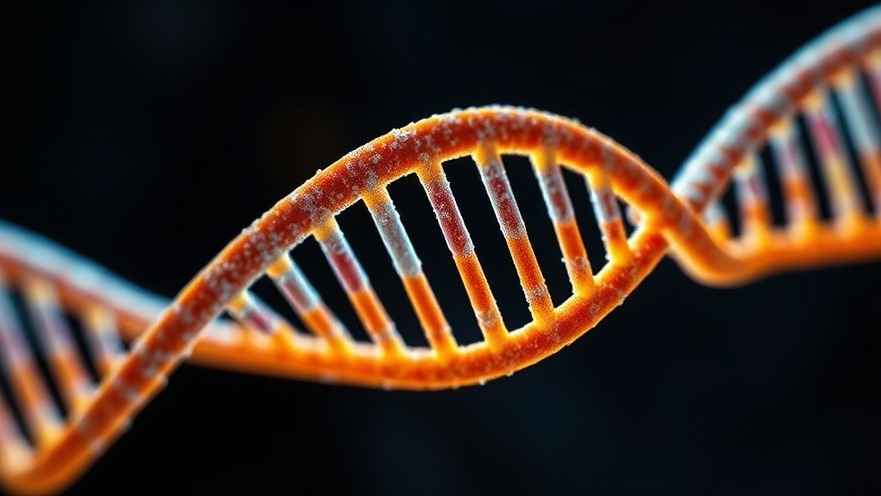
Understanding Genes: The Blueprint of Life
As digital nomads travel the globe, they often prioritize staying fit, eating well, and managing healthcare from different locations. However, understanding the fundamental building blocks of life—genes—can help enhance their overall wellness. A gene is essentially the basic physical and functional unit of heredity made up of DNA, acting as an instruction manual for the creation of proteins essential for the body’s functioning.
The Role of Genes in Health and Nutrition
In the age of information, understanding the interplay between genetics and health can significantly impact the digital nomad lifestyle. With over 20,000 human genes identified—many of which are responsible for metabolic functions—individual dietary needs can differ. For instance, some may have genes that affect how their bodies respond to caffeine or process carbohydrates. Knowing which foods align with one's genetic makeup can optimize wellness, especially for those frequently changing environments.
Diving Deeper into Genetics
Most individuals inherit two copies of each gene—one from each parent. Interestingly, less than 1% of our genes are variable between individuals, introducing the concept of alleles. These small genetic differences contribute to unique physical characteristics and health predispositions. Understanding these variations equips nomads with better knowledge of their nutritional needs, potentially leading to more effective health management.
The Human Genome and Its Secrets
The Human Genome Project, completed between 1990 and 2003, marked a monumental step in genetics. It paved the way for an extensive understanding of the DNA sequence that constitutes the human genome, which houses almost 19,900 genes responsible for protein production. This knowledge has vast implications, not only for healthcare but also for enhancing workplace ergonomics, particularly when working remotely. As we learn more about how genes function, we can develop personalized strategies that promote physical health amid lifestyle challenges.
Gene Symbols: A Unique Language
The systematic naming of genes aids scientists and healthcare professionals in tracking and understanding their roles. Since some gene names can be lengthy, abbreviated symbols are assigned for practicality. For example, the cystic fibrosis transmembrane conductance regulator is abbreviated as CFTR. Familiarizing oneself with these terms, especially for those interested in health management and telemedicine while abroad, can empower informed decisions.
Genes and Personalized Healthcare
For digital nomads managing healthcare abroad, an understanding of genetics can enhance the decision-making process. Personalized healthcare models increasingly take genetic information into account, allowing tailored treatment and wellness plans. Whether it’s understanding susceptibility to certain health issues or optimizing nutrient intake based on genetic predispositions, awareness of one’s genetic profile can lead to improved health outcomes.
Conclusion: Empower Your Nomadic Journey
Incorporating knowledge of genetics into the lives of digital nomads can unveil pathways to enhanced health and productivity. In a world where personal health management is essential—especially while fluctuating between diverse environments—understanding genes provides digital nomads with the tools to stay fit and healthy. By initiating conversations about genetic connectivity in wellness and nutrition, every traveler can ensure they are not just surviving but thriving on their journeys. Remember to consult healthcare professionals who can provide personalized advice based on genetic information. Take charge of your health today!
 Add Row
Add Row  Add
Add 




Write A Comment